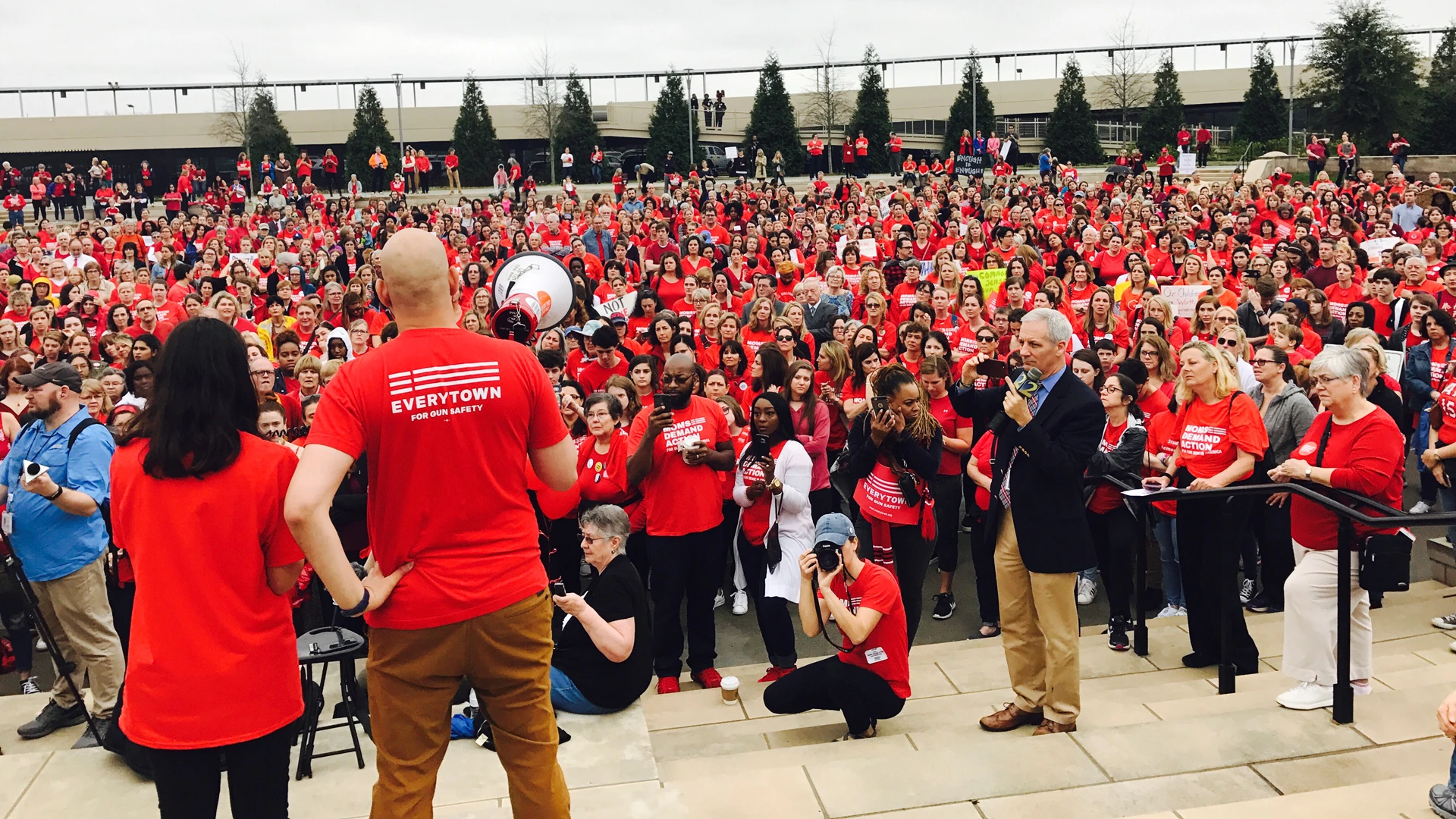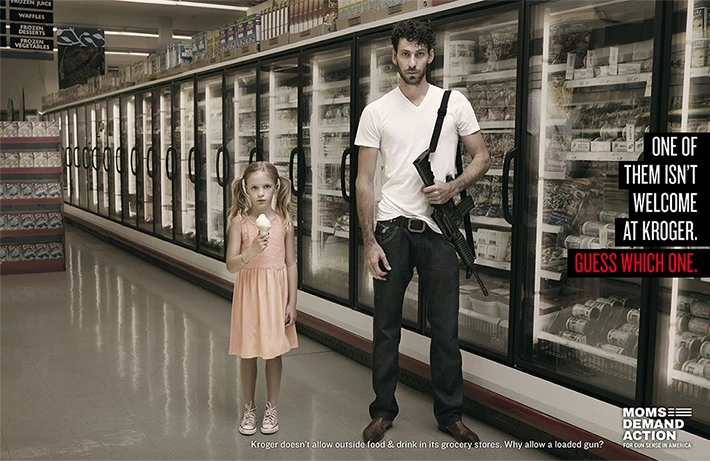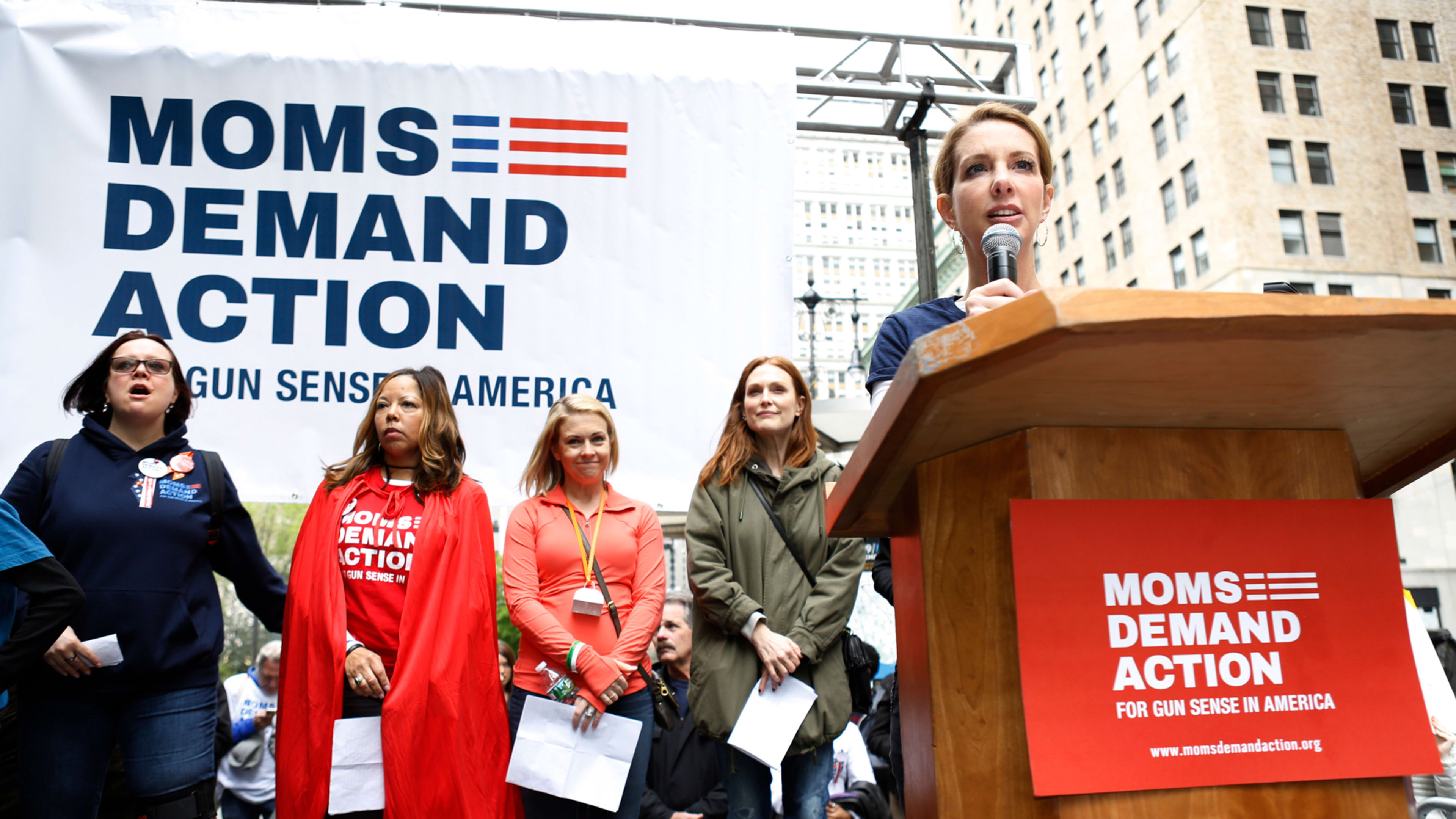Walmart announced that it was “respectfully requesting” that customers no longer openly carry guns into its stores on September 3—a month after a gunman walked in a Walmart in El Paso, Texas, and shot 48 people, killing 22 victims. Kroger, the country’s largest grocery store chain, made the same request of customers a day later. Walgreens, CVS, and the grocery chains Wegmans, Aldi, Meijer, Publix, Albertsons, and Lucky followed. In total, 40 brands owned by those chains changed their policies within roughly a week.

Behind the scenes, a grassroots group called Moms Demand Action for Gun Sense in America was helping push for the changes. The group was founded by a mother the day after the shooting at Sandy Hook Elementary School in 2012, when 20 children and six adults were killed by a gunman. After lobbying for a federal bill to close a loophole for background checks that failed to pass, the group started focusing on state laws and the opportunity for businesses to act. “We pivoted and started doing this work in statehouses and boardrooms, knowing that like many social issues, that’s how you build political power and momentum,” says Shannon Watts, the group’s founder. “If you want to go to toe to toe with a special interest, you have to change this on really three levels: legislatively, electorally, and culturally.”
The group’s work with businesses started with Starbucks in 2013. The chain, like many, allowed open carry of weapons in its stores. When the company announced that it was asking customers not to smoke in front of stores, “we decided we were more afraid of secondhand bullets than secondhand smoke,” Watts says. She spoke with the company and learned that it planned to stay neutral on gun issues, so she helped organize a “momcott,” where mothers used social media to make images of open carry go viral and posted about having coffee at home, or at competitors’ establishments. Perhaps predictably, some pro-gun activists started showing up at Starbucks brandishing semi-automatic rifles in response to the campaign—and that was enough to convince then-CEO Howard Schultz to change his mind.
“Within three months, Howard Schultz came out on CNN and said guns were no longer welcome inside their stores—not just open carry, but guns in general. And we realized that was something that we could replicate in order to force this cultural change at other companies,” she says.
In 2014, the group shamed Chipotle into announcing an open-carry ban in its restaurants, and then did the same for Target and other businesses. It focuses on open carry, Watts says, because the practice is legal in 45 states, and 41 have little regulation, meaning that it’s often possible to legally carry a long gun without a background check, training, or a permit. (In most states, concealed-carry laws do have more requirements.) “It’s also culturally reprehensible,” she says. “It should not be on customers and employees to determine whether someone who walks in open carrying a gun is open carrying or about to open fire.”

The activists’ progress was often slow. The group launched a campaign against Kroger and Walmart in 2014; one ad ran in national newspapers and on billboards in Kroger’s home city of Cincinnati showing a girl holding an ice-cream cone in a Kroger store next to a man with a rifle, pointing out that only the girl was violating the store’s policy. They gathered hundreds of thousands of signatures on petitions. But both stores were unwilling to change. “I went and met with their executives in 2015,” says Watts. “And it was very clear that they would not consider changing their policy. But we just kept the pressure on. And then after the mass shooting at a Walmart in El Paso, we began conversations again with Walmart executives and gave them counsel on policies that would make their store safer.” After Walmart announced its new policy—including, beyond the new open-carry policy, a plan to stop selling ammunition—the group pivoted to pressure Kroger, which made its announcement the next day.
In part, more may be happening now because companies recognize that there’s broad support for action to reduce gun violence. An Edelman survey last week found that if a CEO takes action to reduce gun violence, customers say that they are more likely to purchase that company’s products by a four-to-one margin. There’s bipartisan support for stricter gun laws, such as universal background checks. After the shooting in Dayton, Ohio, several Republican-elected officials, including the state’s governor, changed positions to support stronger gun laws. Kroger, which is based in Ohio, was likely influenced by that, Watts says. “I do think that corporate influencers listen to lawmakers and vice versa,” she says. “This is all about changing the culture.” The NRA is also losing influence and money. (For stores that have stopped selling guns or ammunition, those decisions may also be helped by the fact that gun sales have slumped.)
Along with other advocates, Moms Demand Action has worked to pass new state laws including red flag laws, which allow family members to ask the state to temporarily take guns away from people who may be dangerous; laws that close a background check loophole; and bump stock laws that ban owning and selling machine guns. But it says that federal action is also critical, and it’s another place that companies can play a role—like the letter that 145 C-suite executives wrote last week urging the Senate to vote on gun bills that the House already passed (and that are likely to pass the Senate if and when they come to a vote). That level of support is “a sea change,” Watts says. “This is not something that businesses have historically wanted to get involved in.” Now, she says, they increasingly recognize that the majority of their customers want action. “For so long, this very vocal minority of gun extremists have controlled the conversation and the political debate, but the silent majority is no longer silent.”
Recognize your brand’s excellence by applying to this year’s Brands That Matter Awards before the early-rate deadline, May 3.
